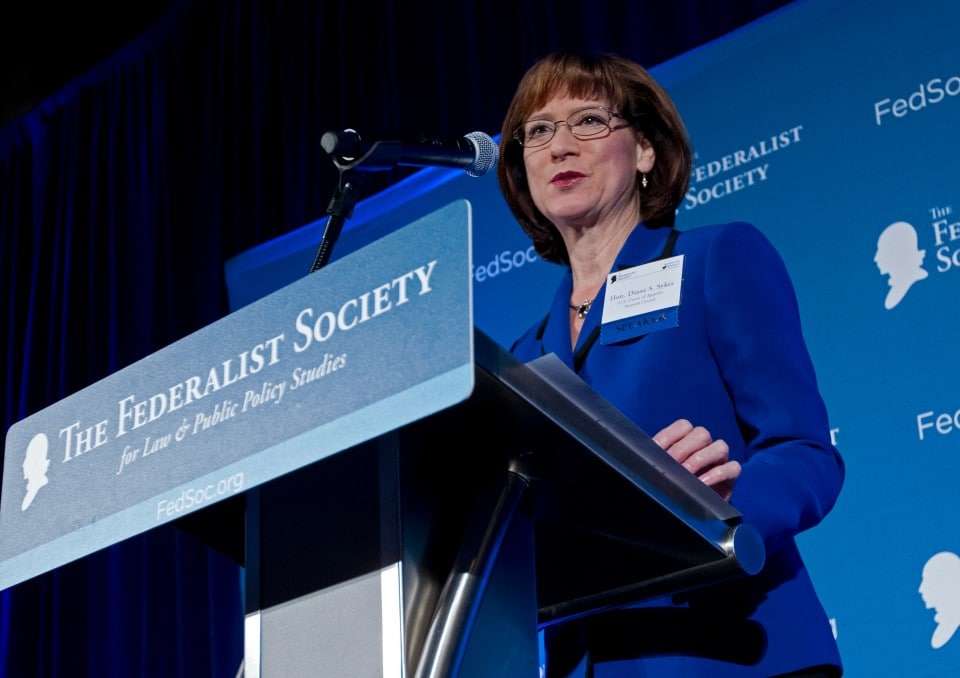The Volokh Conspiracy
Mostly law professors | Sometimes contrarian | Often libertarian | Always independent
Judge Sykes, possible confirmation hearings, and sexual-orientation discrimination

From a U.S. Law Week article that discusses U.S. Court of Appeals for the 7th Circuit Judge Diane Sykes, a rumored short-short-lister for the Supreme Court nomination:
A potential confirmation hearing for Sykes might be easier than it would be for [U.S. Court of Appeals for 11th Circuit Judge William] Pryor, but that doesn't mean it would be easy.
Sykes could face questioning about her handling of an ongoing gay rights dispute recently argued on rehearing at the Seventh Circuit, Hively v. Ivy Tech Cmty. Coll., No. 15-1720 (7th Cir. en banc, argued 11/30/16).
The dispute centers on whether the ban on sex discrimination in Title VII of the 1964 Civil Rights Act prohibits discrimination based on sexual orientation.
A Seventh Circuit panel found that Title VII doesn't prohibit employment discrimination based on sexual orientation in Hively, 830 F.3d 698 (7th Cir. 2016).
But several judges at the Nov. 30 rehearing argument seemed to agree with plaintiff Kimberly Hively, a lesbian college instructor, that such discrimination is illegal.
However, Sykes questioned Hively's attorney's suggestion that the treatment of a lesbian employee can be compared with that of a heterosexual male employee.
"In sex discrimination claims we're looking for evidence that will tell us or tell a reasonable factfinder that sexism is the motivating reason for the employment action, not homophobia as the allegation is in this case," Sykes said.
Sykes suggested that the relevant comparison group would be qualified gay males rather than just qualified males.
The plaintiff's attorney responded that you can't define "gay" and "lesbian" without thinking about their sex in relation to whom they are attracted.
I must admit that I have recently learned the dangers of predicting what will happen in American politics. But I'll still go out on a limb and say this: Defending, before the Senate, the view that Title VII doesn't ban sexual-orientation discrimination should indeed be pretty "easy" -
Senator, I know you and your colleagues have been debating the Employment Non-Discrimination Act, which would ban sexual-orientation discrimination in employment. If you enact it, I will of course gladly apply it. I just think that Congress hasn't enacted such a ban yet. I think that, when your predecessors banned sex discrimination 50 years ago, discrimination based on sex was understood to mean discrimination against women or against men, not discrimination based on sexual orientation.
And if, for reasons of judicial ethics, Sykes can't say this (for instance, because the case will still be pending, either in the 7th Circuit or on a cert. petition before the Supreme Court), I'm pretty sure the other senators can.
Now this may not be an "A" answer on a law school paper; I know there are all sorts of plausible arguments on both sides of this question, and a thorough scholarly answer - or even a thorough lawyerly answer in a brief or in an opinion - would have to go through a lot more. But for a confirmation hearing, I'd think that the answer I outlined would be pretty appealing both to the public and to many senators. Or am I missing something here?


Show Comments (0)